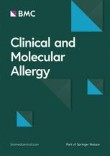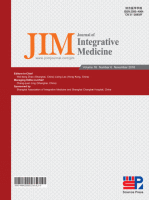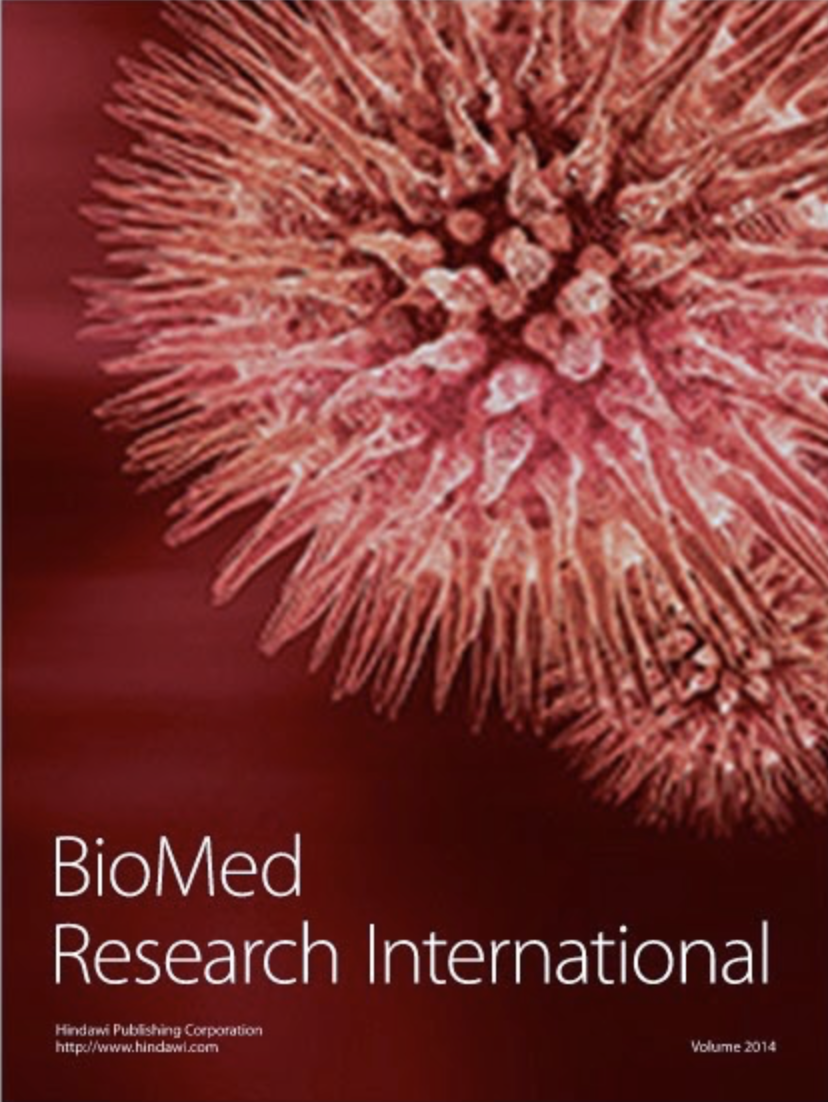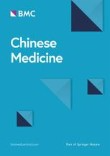Hives
How to submit an article:
- Registered users can submit any published journal article that has a unique DOI (Digital Object Identifier) name or link to Research Hub.
- For example, you can paste the full DOI link:
https://doi.org/10.1109/5.771073or just the DOI name:10.1109/5.771073into the field above and click submit. - The person who is first to submit a valid article to Research Hub will forever be credited for it, and every article submission earns you +6 Research Points.
Also known as: Urticaria
Published research studies are articles that present the findings of original research that has undergone a peer-review process and has been made publicly available in scholarly journals, books or other media.

Successful management of chronic urticaria and food allergies in a pediatric population using integrative traditional Chinese medicine therapy: a case series
2022 Nov 25 Clinical and Molecular Allergy Fan X, McKnight T, Neshiwat J, Park S, Chung D, Li XM
Three pediatric patients with a known history of multiple food sensitivities and physician-diagnosed food allergies that presented with frequent, persistent, and difficult to treat hives (FPDTH) underwent a TCM regimen and experienced dramatic improvement in symptoms and reduction in their IgE levels.
Case Report Food Allergy Children's Health
Efficacy and safety of Chinese medicine combined with acupuncture in the treatment of chronic urticaria: A meta-analysis
2022 Sep 09 Medicine Lu Z, Zhou Q, Chai S, Yang H, Wang J, Luo H, et al.
Systematic Review Meta-Analysis Acupuncture HivesAcupuncture coupled with traditional Chinese medicine may be more effective and safer than conventional Western medicine in treating chronic urticaria.

Cupping therapy for patients with chronic urticaria: A systematic review and meta-analysis
2020 Jul Journal of Integrative Medicine Xiao, X., Zhang, L., Shi, Y., et al.
Systematic Review Meta-Analysis Cupping Hives Skin ConditionsCupping therapy, as an adjunct to current treatments, may potentially enhance efficacy when treating patients with chronic urticaria.

The Effectiveness and Safety of Acupuncture for Patients with Chronic Urticaria: A Systematic Review
2016 Jan BioMed Research International Yao Q, Li S, Liu X, Qin Z, Liu Z
Systematic Review Acupuncture HivesAcupuncture may prove effective and safe in relieving symptoms of chronic urticaria.
Research insights are moderated by the Research Hub team and offer an at-a-glance overview of interesting research findings.

2022 Medicine
Acupuncture coupled with traditional Chinese medicine may be more effective and safer than conventional Western medicine in treating chronic urticaria.
Systematic Review Acupuncture
Efficacy and safety of Chinese medicine combined with acupuncture in the treatment of chronic urticaria: A meta-analysis
Lu Z, Zhou Q, Chai S, Yang H, Wang J, Luo H, et al.

2020 Journal of Integrative Medicine
Cupping therapy, as an adjunct to current treatments, may potentially enhance efficacy when treating patients with chronic urticaria.
Systematic Review Cupping Skin Conditions
Cupping therapy for patients with chronic urticaria: A systematic review and meta-analysis
Xiao, X., Zhang, L., Shi, Y., et al.

2016 BioMed Research International
Acupuncture may prove effective and safe in relieving symptoms of chronic urticaria.
Systematic Review Acupuncture
The Effectiveness and Safety of Acupuncture for Patients with Chronic Urticaria: A Systematic Review
Yao Q, Li S, Liu X, Qin Z, Liu Z
Review Articles
Review articles summarise and critically evaluate the current state of research on a specific topic or field by synthesising multiple primary research studies.

Efficacy and safety of Chinese medicine combined with acupuncture in the treatment of chronic urticaria: A meta-analysis
2022 Sep 09 Medicine Lu Z, Zhou Q, Chai S, Yang H, Wang J, Luo H, et al.
Systematic Review Meta-Analysis Acupuncture HivesAcupuncture coupled with traditional Chinese medicine may be more effective and safer than conventional Western medicine in treating chronic urticaria.

Cupping therapy for patients with chronic urticaria: A systematic review and meta-analysis
2020 Jul Journal of Integrative Medicine Xiao, X., Zhang, L., Shi, Y., et al.
Systematic Review Meta-Analysis Cupping Hives Skin ConditionsCupping therapy, as an adjunct to current treatments, may potentially enhance efficacy when treating patients with chronic urticaria.

The Effectiveness and Safety of Acupuncture for Patients with Chronic Urticaria: A Systematic Review
2016 Jan BioMed Research International Yao Q, Li S, Liu X, Qin Z, Liu Z
Systematic Review Acupuncture HivesAcupuncture may prove effective and safe in relieving symptoms of chronic urticaria.
Clinical Trials
Clinical trials are research studies that involve people and are conducted to evaluate the safety and efficacy of new treatments or interventions, such as drugs, medical devices, or behavioural therapies.
Study Protocols
Published study protocols are detailed plans that outline the objectives, methodology, statistical analyses, and organisation of a research study that have been made publicly available for others to review and use as a reference.

Efficacy and safety of modified Xiao-Feng Powder in the treatment of chronic urticaria: protocol of a randomized double-blind placebo-controlled study
2022 Jul 22 Chinese Medicine Hung HY, Song T, Loo SKF, Chan KL, Ching JYL, Sum CH, et al.
The results of this study will establish robust clinical evidence about the efficacy and safety of modified Xiao-Feng Powder (mXFP) in the treatment of chronic urticaria (CU). A specific feature of this trial is that it is a integrative medicine trial with subjects being allowed to take the Western and Chinese medicine together for the treatment.
Study Protocol Hives
Efficacy and safety of acupuncture for patients with chronic urticaria: study protocol of a randomized, sham-controlled pilot trial
2019 Jun 04 Trials Shi Y, Zheng H, Zhou S, Zheng Q, Zhang L, Xiao X, et al.
The pilot study mainly aims to investigate trial feasibility, and confirm basic information about its effects and safety. Results of this trial will help clarify whether the acupuncture treatment is beneficial for symptom improvement in patients with CU. The finding of this study will provide preliminary evidence on the effectiveness and safety of acupuncture for CU.
Study Protocol Hives Skin ConditionsPresentation Slides

Systematic Review
Acupuncture coupled with traditional Chinese medicine may be more effective and safer than conventional Western medicine in treating chronic urticaria.
Lu Z, Zhou Q, Chai S, Yang H, Wang J, Luo H, Cao Y, Tao M

Systematic Review
Cupping therapy, as an adjunct to current treatments, may potentially enhance efficacy when treating patients with chronic urticaria.
Xiao, X., Zhang, L., Shi, Y., Yao, J., Cao, W., Liu, Y., Zou, Z., Zhou, S., Chen, M., Li, C., Zheng, Q., & Li, Y.

Systematic Review
Acupuncture may prove effective and safe in relieving symptoms of chronic urticaria.
Yao Q, Li S, Liu X, Qin Z, Liu Z
Executive Summary
Write an executive summary in the form of a blog article on the topic of "Research into Chinese medicine treatment for Hives" summarising the research below and using language that can be easily understood by patients and avoiding medical jargon using a professional and caring tone of voice.
Write an executive summary in the form of a blog article on the topic of "Researched Chinese medicine treatments for Hives" summarising the research below in an objective and easy to understand way, and using language that can be easily understood by patients. Group the article into Chinese medicine treatments first, followed by nutrition and other treatments. Avoid using medical jargon and use a professional and caring tone of voice.
Write me a concise but easy to understand executive summary on the topic of "Chinese medicine treatments for Hives" based on the following research that I will give you. Your summary should be 2 paragraphs long in Australian English spelling and include references to the studies.
A Systematic Review published in 2022 in the journal Medicine found that Acupuncture coupled with traditional Chinese medicine may be more effective and safer than conventional Western medicine in treating chronic urticaria. To compare the efficacy of acupuncture with traditional Chinese medicine to conventional Western medicine, several databases, including Pubmed, Embase, Cochrane Library, CNKI, Wanfang, CQVIP, and CBM, were searched until August 2021. The criterion for inclusion were randomized control trials where the experimental group was treated with acupuncture and traditional Chinese medicine, and the control group with conventional Western medicine. Studies were excluded if they were repeated publications, lacked full text, incomplete in information, or incapable of data extraction. Animal experiments, reviews, and systematic reviews were also disregarded. Data analysis was conducted using STATA 15.1 software. The analyzed results revealed that the total effective rate of the group treated with acupuncture and traditional Chinese medicine was noticeably higher than those treated with conventional Western medicine. Additionally, this group showed considerably lower Urticaria Activity Scores and pruritus scores compared to those treated with Western medicine. However, there was no substantial difference shown in the wheal score between both groups. Significantly, the recurrence rate and the incidence rate of adverse events in the group treated with acupuncture and traditional Chinese medicine were markedly lower than the other group. This highlights the greater effectiveness and safety of the combination of acupuncture and traditional Chinese medicine for chronic urticaria compared to Western medicine.
A Systematic Review published in 2020 in the journal Journal of Integrative Medicine found that Cupping therapy, as an adjunct to current treatments, may potentially enhance efficacy when treating patients with chronic urticaria. The research adopted a systematic review of randomized controlled trials, with the focus on efficacy and safety of cupping therapy for chronic urticaria. The researchers employed a search strategy aimed at identifying related keywords like "chronic urticaria" and "cupping therapy" in the title and abstracts, sourced from nine major electronic databases up till May 2019. Only trials that included patients with chronic urticaria who received dry or wet cupping were considered. The quality of the methodological design and potential bias of the studies were evaluated. The findings suggest the efficacy of cupping therapy when used, not as a standalone treatment, but as an adjunct to other treatments, particularly to antihistamines and acupuncture. In a sample of trials, there were no significant differences between using wet cupping and conventional medications in terms of their total effective rate. However, cupping therapy combined with antihistamines or acupuncture was found to be more effective than when these treatments were used separately. No serious adverse events were reported as part of these findings.
A Systematic Review published in 2016 in the journal BioMed Research International found that Acupuncture may prove effective and safe in relieving symptoms of chronic urticaria. In the methodology, a systematic review and meta-analysis were carried out incorporating randomised controlled trials. The main outcome focused on was global symptom improvement. The results indicated that out of the 6 studies with 406 participants, three trials demonstrated a substantial difference between acupuncture and medication in terms of global symptom improvement. Moreover, when acupuncture was used as an addition to medication, it showed beneficial effects for global symptom improvement. No severe adverse events related to acupuncture were reported. Limitations included high bias risk across the trials, and methodological restrictions.
Moderation Tools
Topic
Sign In
Users not signed in are limited to viewing the 5 most recent items of content.